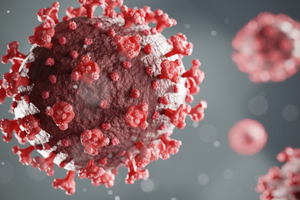
A new study which monitored the outcome and uptake of COVID-19 vaccines in people with epilepsy has recently been published in epilepsy medical journal, Epilepsia.
The study assessed data collected from three medical centres across China from July 24th – August 31st 2021.
In total, 981 people were recruited for this study and were interviewed using questionnaires to collect & assess data surrounding their reasons for taking or not taking the vaccine and to assess the outcome of the vaccine on those taking part.
Of the 981 people recruited, 491 people had epilepsy; 217 had other neuropsychiatric conditions and 273 had no underlying conditions.
The questionnaire presented to participants with epilepsy sought to learn more about their condition, seizure control and reasons for hesitation around vaccination. This way their condition pre & post vaccination could be monitored and assessed.
Data was collected from healthy controls to compare this with the data with those with epilepsy to see whether there was an increased report of side-effects amongst people with epilepsy and to learn more about hesitancy around vaccination.
When this data was collected and assessed, the authors of the research have made two key conclusions:
- The data collected from people with epilepsy has found no evidence suggesting worsening seizure control post-vaccination; with less than 10% reporting an increase in seizures post vaccination. However, for this cohort of people who reported an increase in seizures, the study’s authors speculate that this may have been coincidental and owing to the fluctuating nature of epilepsy rather than any post-vaccination side-effects.
- Vaccination rates amongst people with epilepsy were much lower than their “healthy” controls. At the time of the study, 93% of healthy controls had been administered with a first dose of a vaccine, compared to 42% of those with epilepsy. People with epilepsy cited hesitance around vaccination due to potential loss of seizure control/increase in seizure frequency and concerns around potential adverse side-effects of vaccination.
Alongside the above two key findings, no incidences of status epilepticus amongst those with epilepsy was recorded while reports of adverse side-effects (pain at injection site, fatigue, headache, fever etc) were not increased in people with epilepsy when compared with “healthy” controls.
The findings of this study are very welcome as this represents the first wide-scale study on the use of COVID-19 vaccines in people with epilepsy.
We know that many people have been concerned that potential side-effects from vaccination could lead to an increase in seizures or a breakthrough seizure. The first key finding from this study now provides evidence around this and how this was a rare occurrence in the 491 people with epilepsy included in this study and potentially not linked.
You can read this study in full by visiting the Online Wiley website.
